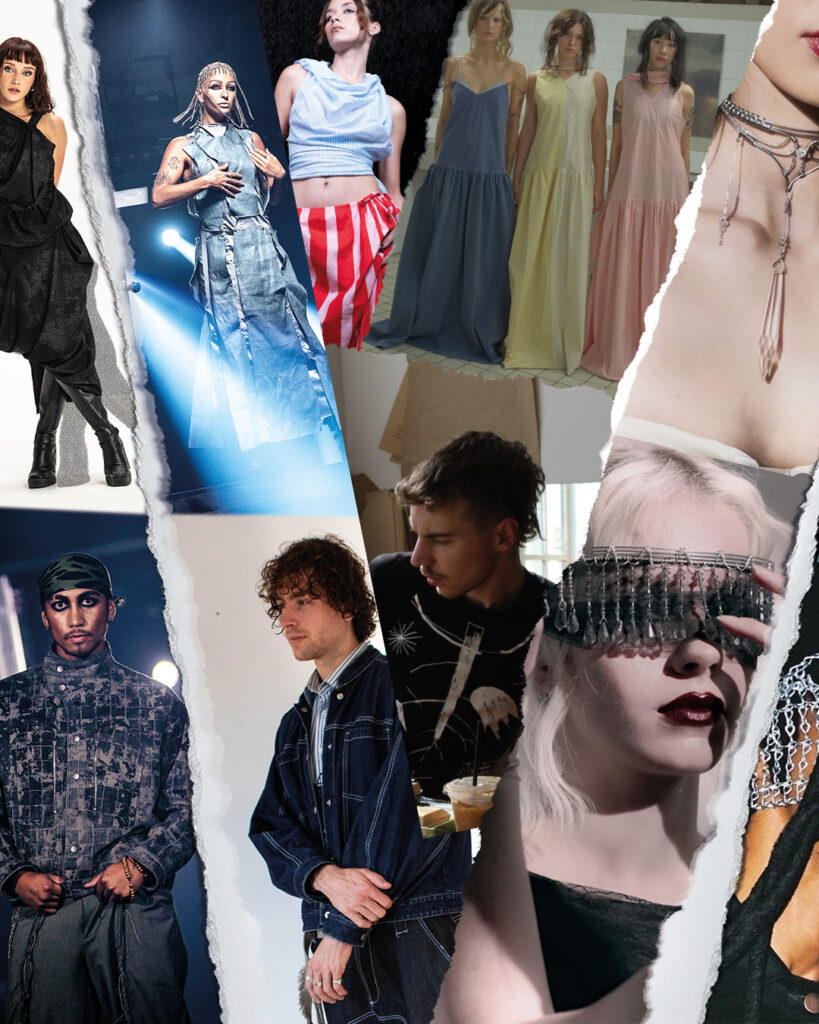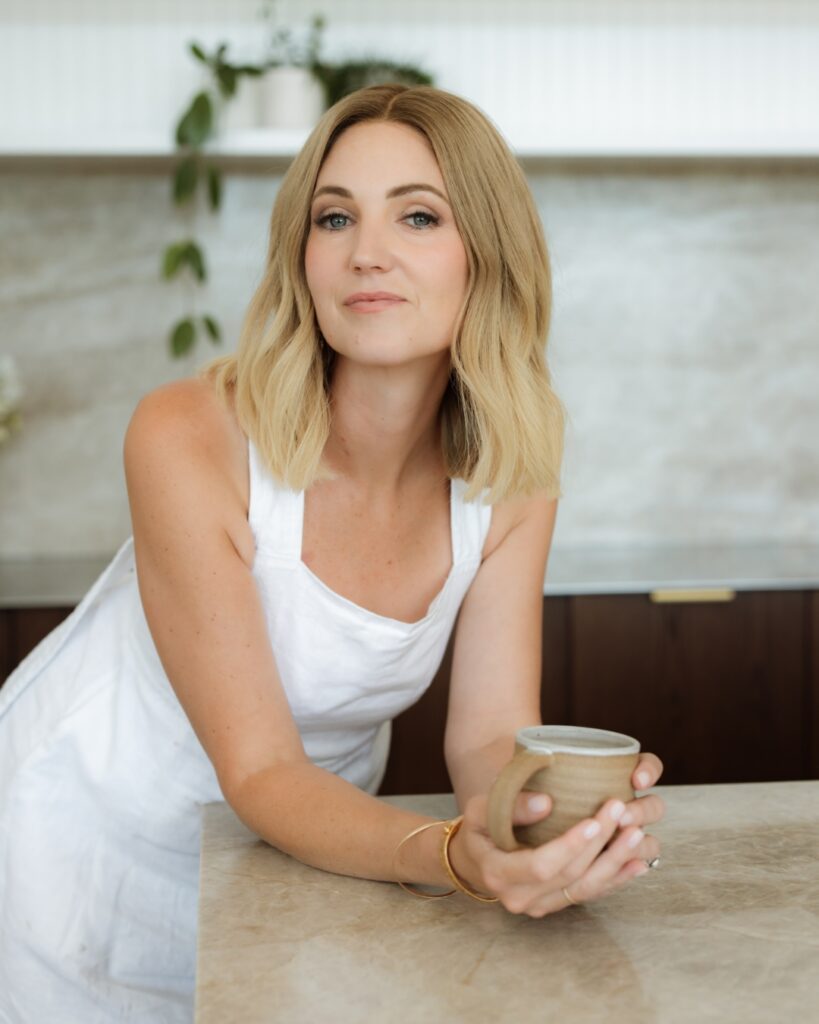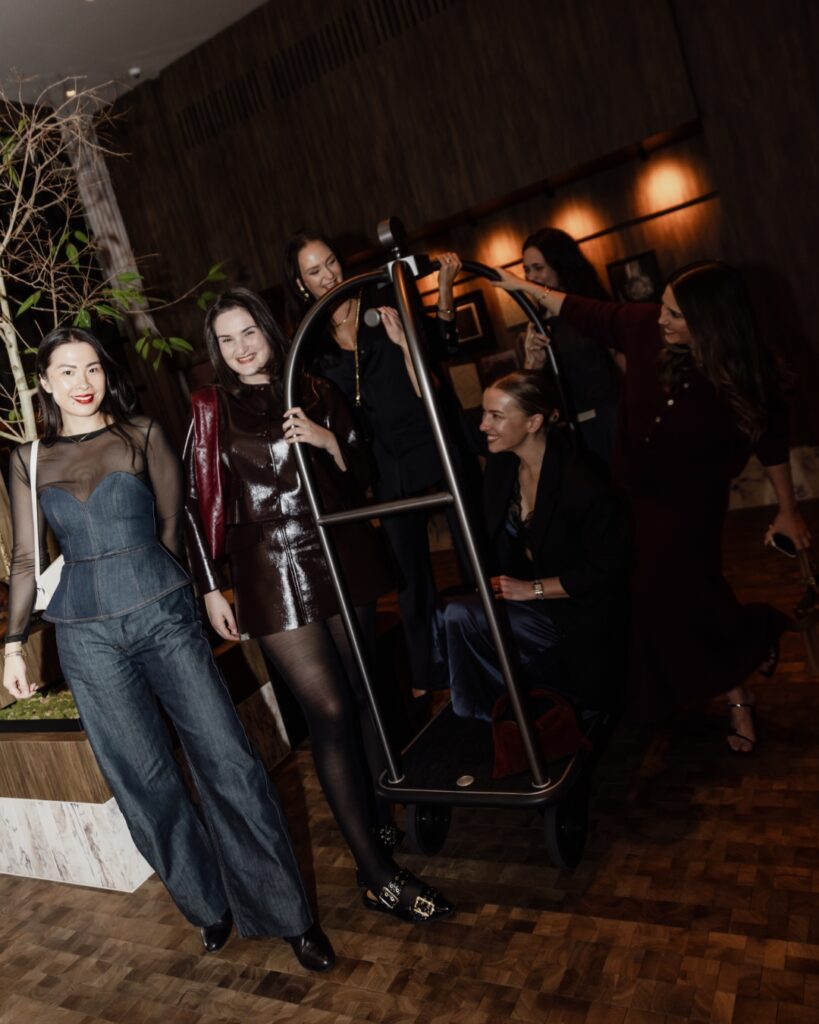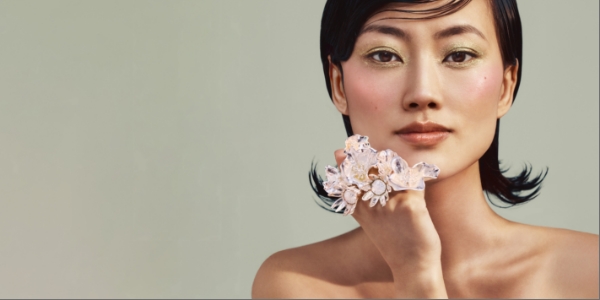Drawing on the nostalgia of her New Zealand childhood, Auckland-based designer Courtney Pellow is quietly sharing her sustainability-focused vision with the rest of the world.
Gigi Hadid is a fan of Courtney Pellow – she was spotted last year wearing Courtney’s upcycled woollen long johns patched with old socks, and jeans featuring an abstract digital collage of native bush.
If that’s not Kiwi enough for you, there’s always Courtney’s contemporary take on the classic bush shirt: old blankets from the Wanganui Woollen Mills turned into one-off oversized shirts.
During Fashion Revolution Week, we asked her to share her unique take on sustainable style:
What does ‘sustainable’ mean to you?
Sustainability for me means living within your means, not living wastefully and being a conscious, selfless consumer. As a designer, I strive to contribute more quality over quantity and innovate as much as possible.
This means spending more time creating intangible ideas and concepts rather than just making heaps of clothes. Questioning and challenging every design and every step of the creation process is important.
Why is Fashion Revolution Week so important?
It creates a buzz and dynamic that gets people talking, it’s all about awareness. It’s also a time to remind everyone to think and challenge the way they dress, spend money, take care of clothes – and importantly, to remember the people working to create the clothes behind closed doors or half way around the globe that you normally wouldn’t acknowledge or think about.
Can you tell us how your business approaches sustainability and ethical practices?
From the get-go we only use extremely high-quality materials and craftsmanship, this ensures everything we do create and put out there is going to stand the test of time and inherently be less wasteful.
We have a strong use of up-cycling through our collections, taking pre-existing either materials or clothes and reworking them into new things, a real win-win at eliminating waste, regenerating and creating beautiful and cherished new items.
All our new cottons are certified organic and traceable, I think this should be standard practice! Lastly our whole design, sampling and production process in on shore in New Zealand, this ensures good ethics and a bonus of contributing more to our own economy.
Why has it been so important to you to put these processes in place?
I wouldn’t find designing and creating clothes enjoyable if I was simply adding to the noise and waste around us. It’s fuel to the fire of making a positive impact on an industry and contributing to change.
What is the one thing consumers could do today to take action and drastically change their consumption of fashion?
Buy less spend more. It’s one of my mottos and is broader than just fashion. There’s no reason anyone needs more and more things, but choose everything in life wisely, truly appreciate what it is and desire for it to be around for the long haul.
This will give you the motivation to spend a few more dollars to ensure you’re buying something that contributes to much more than only your personal satisfaction of owning that item. It should be quality and love you back just as much.
Does having these processes in place make it more challenging to design?
I think it definitely takes a lot more time and effort – it’s an added task and role you take on. In relation to design, I find it gives me more ideas by creating more parameters and challenges, innovating and problem-solving these with a creative cap on is rewarding as hell.
Who should we follow on Instagram right now for instant sustainability inspiration?
Kate Hall @ethicallykate is a local gal and a one-stop shop for all things ethical, sustainable and natural.
To find out more about Fashion Revolution Week, click here.













